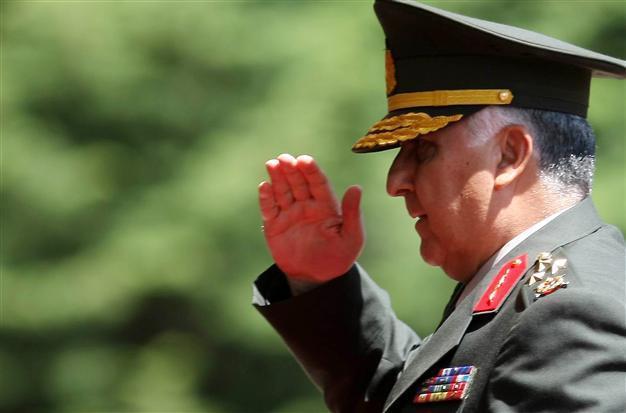Current chief of staff may serve until 2017 with new law
ANKARA

Necdet Özel may serve in his current capacity until 2017 with the government’s will and with the president’s consent. DAILY NEWS photo
The Turkish Parliament adopted a draft outlining amendments in the Military Law and paving the way for current Chief of General Staff Necdet Özel to remain in office until 2017.
According to the new Military Law adopted late Feb. 11, the terms of office for the commanders of the Army, Navy and Air Force, which is normally two years, can be extended each year until their retirement age limit, 65.
The chief of general staff has a term of office limit of four years and a retirement age of 67. Therefore, Özel, who was born in 1950 and took office in 2011, may serve in his current capacity until 2017 with the government’s will and with the president’s consent.
In addition, the new law stipulates that the prime minister’s consent will be obligatory for prosecution of the chief of general staff and commanders of the Army, Navy and Air Force concerning crimes alleged to have been committed while in office. This is already the case with prosecutions of the undersecretary of the National Intelligence Organization (MİT). The law also requires the interior minister’s consent for prosecution of the general commander of the gendarmerie.
The arrangement concerning top MİT officials, as well as special envoys tasked by the prime minister, was hastily brought to Parliament by the ruling Justice and Development Party (AKP) government in February 2012. It came after top MİT officials, including MİT Undersecretary Hakan Fidan were summoned by a specially authorized prosecutor in order to testify as part of an investigation into the Kurdistan Communities Union (KCK), an alleged urban wing of the outlawed Kurdistan Workers’ Party (PKK).
The opposition objected to the amendments to the new Military Law, arguing that it would completely destroy the promotion system of the Turkish Armed Forces (TSK) and place the promotion system entirely under the authority of the government, thus politicizing into the military.
